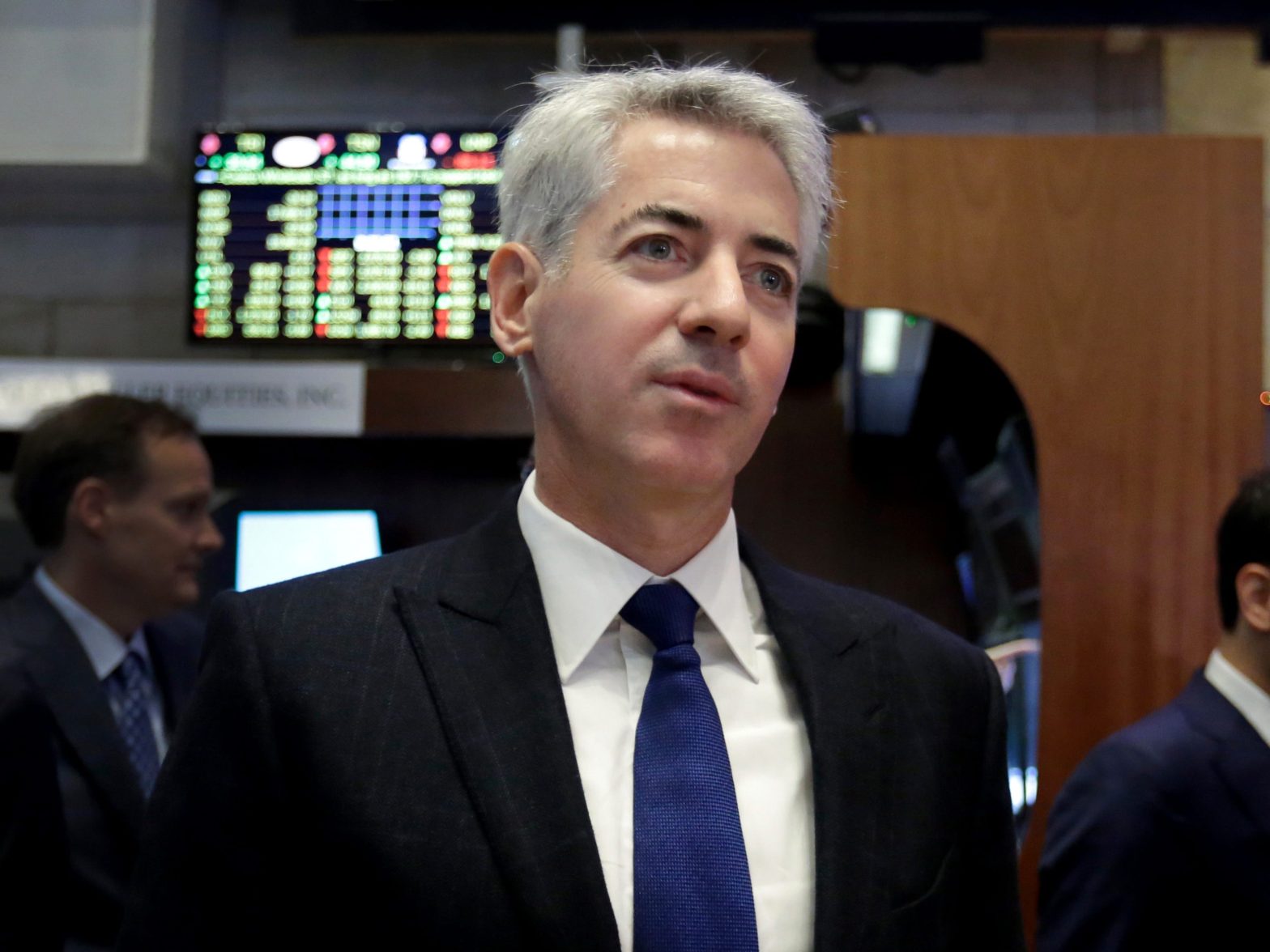George Glover
Bill Ackman is shorting the Hong Kong dollar for his latest trade. Richard Drew/AP Billionaire investor Bill Ackman is shorting the Hong Kong dollar for his latest trade. It’s a ‘smart lottery ticket’ bet that the currency’s dollar peg will break as interest rates rise, veteran trader Boaz Weinstein said. From making $2.6 billion during the pandemic to a failed long position in Netflix, here are Ackman’s biggest trades. Loading Something is loading.
Thanks for signing up!
Access your favorite topics in a personalized feed while you’re on the go.
Loading Something is loading.
Thanks for signing up!
Access your favorite topics in a personalized feed while you’re on the go.
Bill Ackman is betting against the Hong Kong dollar’s peg against the greenback for his latest trade.
“We have a large notional short position against the Hong Kong dollar through the ownership of put options,” the billionaire investor tweeted last week. “The peg no longer makes sense for Hong Kong and it is only a matter of time before it breaks.”
Hong Kong’s currency has had its value fixed at between 7.75 and 7.85 per US dollar for nearly four decades, but the Federal Reserve’s aggressive interest-rate increases this year have put pressure on that peg. Put options are derivative contracts that grant the holder the right to sell an asset at a predetermined price on a fixed date.
Hong Kong’s finance ministry maintains the peg to the dollar by matching the Federal Reserve’s rate decisions. But Ackman says there’s a growing case for it to abandon that strategy, as China grapples with a zero-COVID-fueled economic slowdown and a debt crisis in its property sector.
Veteran trader Boaz Weinstein praised Ackman’s latest short as a 200-to-1 ‘smart lottery ticket’ – but others have said that it’s unlikely his big bet against the Hong Kong dollar will pay off.
“I can see Ackman’s point – Hong Kong’s economy is suffering from slow growth at a time when the dollar is surging because of tightening monetary policy,” SEB’s chief emerging markets strategist Per Hammarlund told Insider. “But I really don’t think the peg is going to break at this point.”
In his 30-year career at the helm of Gotham Partners and then Pershing Square Capital Management, Ackman has racked up some outsized wins – as well as some troubling losses.
Here are seven of the billionaire investor’s biggest trades.
1. Wendy’s, 2004
Shortly after setting up Pershing in 2004, Ackman took a large stake in the fast-food chain Wendy’s.
The activist investor immediately started pressuring Wendy’s to spin off its Tim Hortons coffeehouse business, which it did successfully in 2006 to raise around $670 million for its shareholders.
Ackman exited his Wendy’s position in 2009 for a substantial profit – although the business has seen its share price tumble in the years since the Tim Hortons spinoff.
2. General Growth Properties, 2009
One of Ackman’s all-time greatest trades saw him rescue mall operator General Growth from collapse – and eventually sell his stake for $1.6 billion.
The hedge fund manager spent $60 million to acquire General Growth shares in 2009 before persuading the struggling company to file for bankruptcy.
Ackman then played a key role in the company’s reorganization, selling back shares as its stock price soared until he finally exited his position in 2014.
3. Herbalife, 2012
Ackman called the dietary supplement firm Herbalife a pyramid scheme in 2012 – marking the start of a five-year effort to generate returns by shorting the stock.
Ackman opened up a short position worth around $1 billion in Herbalife, betting it would eventually see its share price crash towards $0.
But the short became one of Ackman’s biggest-ever losses, as Herbalife’s share price continued to rise until he eventually had to liquidate his position in 2017.
4. Valeant Pharmaceuticals, 2014
Pershing Square acquired 8.5% of Valeant for $180 a share in 2014, in what would become known as one of Ackman’s most disastrous trades.
The pharmaceuticals firm saw its share price plummet more than 90% over the next three years after facing multiple accusations of fraud and coming under investigation from the Securities and Exchange Commission.
Pershing Square eventually closed its entire position in Valeant in March 2017, losing over $3 billion on the trade.
5. COVID-19 response, 2020
Ackman’s fame shot to new heights in March 2020, when he made just $2.6 billion betting that the coronavirus pandemic would trigger a full economic shutdown in the US.
Pershing Square spent $27 million buying credit protection on investment-grade and high-yield bond indexes – and then liquidated its position once the Federal Reserve started buying up corporate bonds to protect the economy.
That helped the hedge fund to post a 7.9% gain in March 2020 – a month when the pandemic triggered a 17% crash in the S&P 500.
6. Netflix, 2022
Ackman announced a big bet on Netflix in late January – but exited that position just three months later for a $400 million loss.
That sale came on a day the streaming company saw its share price plummet 35% in a single day after announcing massive subscriber losses.
“While Netflix’s business is fundamentally simple to understand, in light of recent events, we have lost confidence in our ability to predict the company’s future prospects with a sufficient degree of certainty,” Pershing Square said in an April letter to investors.
7. Rising interest rates, 2022
But Ackman bounced back from that loss with a big bet on Federal Reserve interest-rate hikes.
He said in October that Pershing Square had made $2.7 billion by spending around $400 million on interest rate-related hedges as the US central bank stepped up its tightening campaign.
“We’ve had some very significant profits from hedges, a decent percentage of which we’ve realized,” Ackman told Interactive Investor. “We’ve probably made $2.7 billion of profits.”
Read next
MI Exclusive Markets Stock Market Analysis More…
